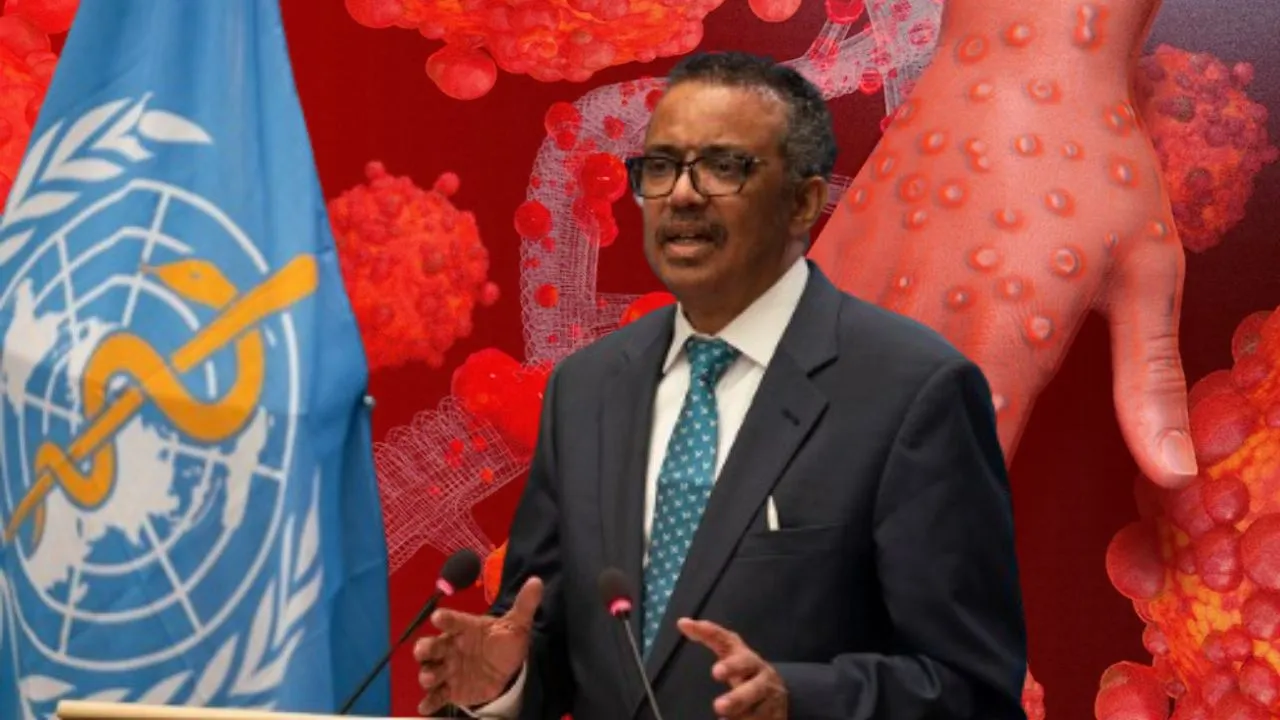The World Health Organization (WHO) has declared Mpox (formerly known as monkeypox) a Public Health Emergency of International Concern (PHEIC) due to the alarming spread of a new strain in Africa. This declaration marks the second PHEIC for Mpox in two years, underscoring the severity of the situation as cases rise dramatically, especially in the Democratic Republic of the Congo (DRC).
Table of Contents
The New Strain and Its Spread
The recent outbreak in the DRC has been particularly devastating, with over 14,000 cases reported, primarily among children, and more than 500 deaths. This new strain, referred to as Clade Ib, appears to be more transmissible and lethal than previous strains, contributing to the rapid escalation of the outbreak. The virus has also spread to neighboring countries, including Burundi, Kenya, Rwanda, and Uganda, which had not previously reported Mpox cases.
Table 1: Mpox Cases and Mortality in Affected Countries (2024)
| Country | Total Cases | Deaths | Case Fatality Rate (%) |
|---|---|---|---|
| Democratic Republic of the Congo | 14,000 | 500 | 3.57 |
| Burundi | 1,500 | 50 | 3.33 |
| Kenya | 2,000 | 60 | 3.00 |
| Rwanda | 1,800 | 55 | 3.06 |
| Uganda | 1,700 | 52 | 3.06 |
Global Impact and Response
The first case of this new strain outside of Africa was reported in Sweden, highlighting the potential for global spread. With over 1,600 cases already reported in the United States this year, more than twice the number at the same time last year, the WHO’s declaration is a critical step in coordinating an international response.
Dr. Tedros Adhanom Ghebreyesus, WHO Director-General, emphasized the need for a coordinated effort, stating, “A global response is essential to stop these outbreaks and save lives.” The declaration of a PHEIC will enable more effective collaboration between countries, the sharing of data, and the acceleration of vaccine distribution.
The PHEIC: What It Means
A Public Health Emergency of International Concern is the highest level of alert issued by the WHO. This declaration signals that the Mpox outbreak is serious, unusual, and poses a global threat. It also means that immediate international action is necessary to prevent further spread.
Criteria for PHEIC:
| Criteria | Explanation |
|---|---|
| Seriousness | The outbreak is severe, with high transmission and death rates. |
| International Spread | The virus has spread beyond the DRC to neighboring countries and Sweden. |
| Need for International Response | Global collaboration is required to control the outbreak. |
Implications of the PHEIC Declaration
The PHEIC declaration facilitates several critical actions, including:
- Mobilization of Resources: WHO has released $1.5 million in contingency funds, with an additional $15 million planned for surveillance and preparedness activities.
- Vaccine Distribution: WHO has initiated the process for emergency use listing of Mpox vaccines, similar to the process used during the COVID-19 pandemic. This will expedite the distribution of vaccines, especially to hard-hit regions like the DRC.
- International Collaboration: The declaration fosters collaboration in research, data sharing, and the allocation of medical supplies, including vaccines and treatments.
Table 2: Resource Allocation for Mpox Response
| Resource Type | Amount Allocated (USD) | Purpose |
|---|---|---|
| Contingency Funds | $1.5 million | Immediate response and outbreak control |
| Surveillance and Preparedness | $15 million | Monitoring, testing, and treatment efforts |
| Vaccine Distribution | 50,000 doses | Targeted for high-risk regions in Africa |
Vaccine and Treatment Options
The JYNNEOS vaccine remains the primary tool for preventing Mpox. It is a two-dose vaccine that has proven to be at least 85% effective in preventing Mpox infection. The WHO’s emergency declaration will help expedite vaccine distribution to affected areas.
JYNNEOS Vaccine Effectiveness:
| Vaccine | Doses Required | Effectiveness | Availability |
|---|---|---|---|
| JYNNEOS | 2 | 85%+ | Limited, but increasing with WHO support |
Public Recommendations
While the risk to the general public remains low, high-risk individuals are strongly advised to get vaccinated. This includes those with compromised immune systems, chronic illnesses, and specific groups such as gay and bisexual men, who were heavily affected in previous outbreaks.
High-Risk Groups:
| Group | Recommendation |
|---|---|
| Immunocompromised individuals | Get vaccinated |
| Chronic disease sufferers | Get vaccinated |
| Individuals with eczema | Get vaccinated |
| Gay, bisexual men, or men who have sex with men | Ensure vaccination (both doses) |
Conclusion
The declaration of Mpox as a global public health emergency by the WHO underscores the critical nature of the outbreak. As the situation evolves, the international community must act swiftly to contain the spread, protect vulnerable populations, and prevent further loss of life. The coming weeks will be crucial in determining the global response and the ability to manage this public health crisis.

